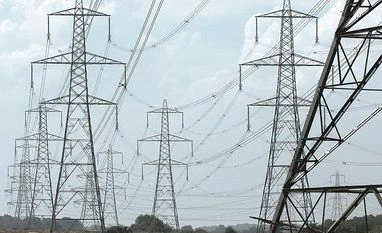The proposal for smart prepaid metering across the country in three years, announced in the Union Budget last week, has been hailed by the power industry. But the initiative is not new. The power ministry has been planning it for the past two years, but with limited success. At the same time, many hurdles await the ambitious plan.
In her Budget speech on February 1, Nirmala Sitharaman said, “The ministry intends to promote smart metering. I urge all states and Union territories to replace conventional energy meters with prepaid smart meters in the next three years,” she said on Saturday.
Two years back, R K Singh, Union Minister for Power, said his ministry was planning to convert all meters in the country to smart prepaid meters. In an interview to Business Standard in 2018, Singh had said he would mandate state-owned power distribution companies (discoms) to switch to smart prepaid meters.
“Smart, because we are aiming at ‘time of the day’ tariff. Prepaid, because it improves bill collection and efficiency. It is pro-poor as well. Consumers can charge as many times as they wish. They will not face disconnection. It is good for discoms as they will get payment in advance,” he had said then.
Since then, 400,000 smart meters have been installed to date in Uttar Pradesh, Delhi, Haryana, Bihar, and Andhra Pradesh. These were by Energy Efficiency Services, which is mandated for smart meters tendering to private companies. Close to 5 million were tendered in the first round.
Responding to the announcement in the Budget, the Indian Electrical and Electronics Manufacturers Association (IEEMA) said this is a positive step and the industry will fully cooperate with the government in meeting the target.
“Installing smart prepaid meters will improve the cash flows and revenue of discoms. Going by the government’s commitment to promote Make In India, it should also ensure indigenous meter makers are preferred over imported ones. With smart prepaid meters come data and cybersecurity risks. Hence, indigenous products should be given priority,” said Sunil Mishra, director general, IEEMA.
Despite the ambitious target, there is, however, no budgetary allocation or grant to smart metering in the Union Budget.
Praveer Sinha, chief executive officer and managing director for Tata Power, called smart metering push a ‘knee-jerk reaction’. “The government needs to first address distribution reforms. Smart meters on their own will not give much benefit,” said Sinha. He further added, once other distribution-related technologies are in place, smart meters will bring in great value.
Several industry players also highlighted that the investment needed under this ambitious plan would come from the private sector and hence, there needs to be a comprehensive policy. “The plan would need close to ~1-1.5 trillion of investment and five-seven years for implementation. There is no guiding policy yet on smart meters,” said an executive of a leading meter company.
He said a common policy should be enforced for all states with rules on payment security, data security, operation and maintenance. “To start with, all state and state electricity regulatory boards should be on board and agree to a unified policy,” he said.
A smart prepaid meter has a modem (communication device) and a remote switch by which demand, supply, and billing can be monitored and controlled remotely. The data from the meter is collected in a cloud server. This reduces energy theft, improves billing and bill collection. It also helps discoms collect the data of consumer demand patterns, which, in turn, can be used to plan supply.
Unlock 30+ premium stories daily hand-picked by our editors, across devices on browser and app.
Pick your 5 favourite companies, get a daily email with all news updates on them.
Full access to our intuitive epaper - clip, save, share articles from any device; newspaper archives from 2006.
Preferential invites to Business Standard events.
Curated newsletters on markets, personal finance, policy & politics, start-ups, technology, and more.
)